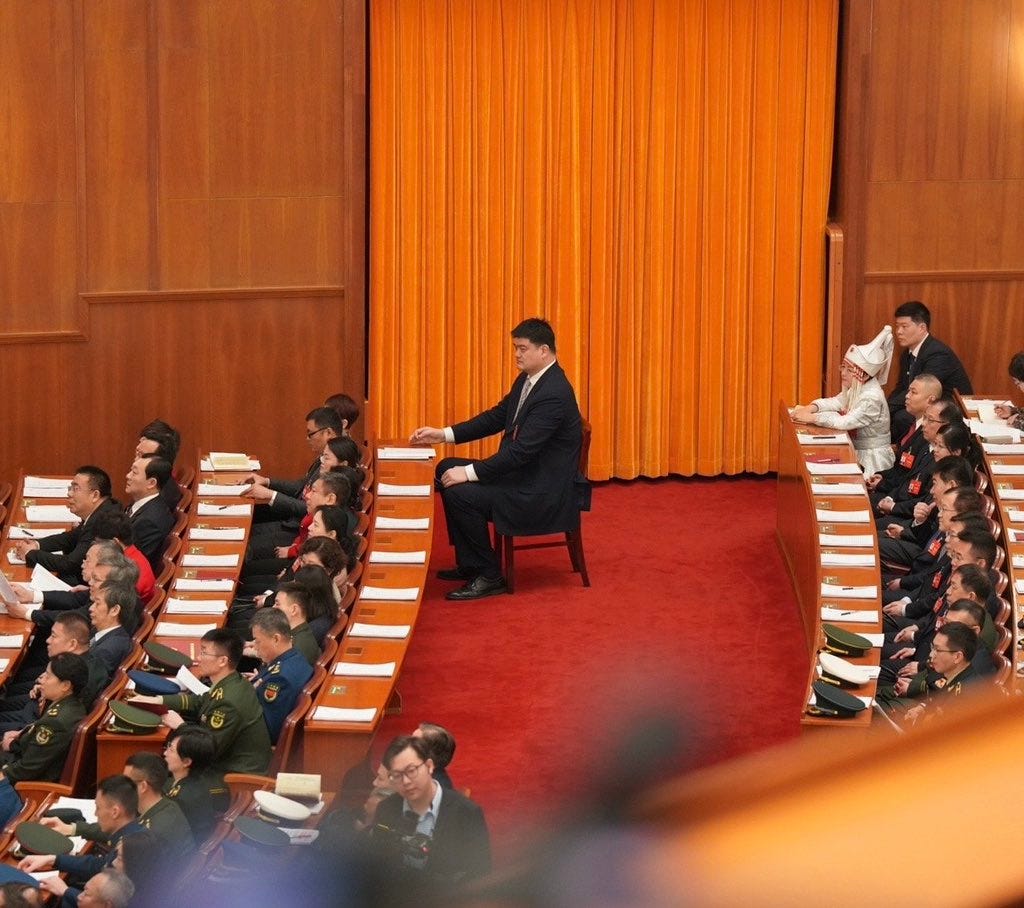The China Factor: Part One
China still matters in US politics, but the focus has shifted
Yes, the person who looks like an adult sitting alone at a kindergarten pupil’s desk is the legendary basketball player Yao Ming. Last week the former NBA player was in Beijing as legislative representative to the National People’s Congress.
Despite recent tensions, the interests of the US and China continue to intersect, but in new and complicated ways that require a nuanced understanding of their divergent political and economic systems, and institutions. In this two-part essay, I first explore legal, legislative, and governance challenges of this bilateral relationship, and will focus on economic issues in Part Two. My take: priorities have shifted, but not always in ways that advance long-term US goals. Politics has overtaken critical economic considerations in both countries, without an understanding the consequences of either.
China’s Influence on US Politics
When President Trump made trade with China a political issue in 2016 he struck a nerve. In 2024 that is going to be harder to do. Blaming China for job losses doesn’t work in a full-employment economy. In terms of focusing on a strategic threat, foreign affairs fatigue has set in with US voters. But in some obvious, and some more subtle ways, China will continue to play a role in US politics this election year.
Softness in the Chinese economy will impact US households positively in 2024, and US and Japanese corporations negatively. Unprecedentedly strong bipartisan resistance in Washington has increased possibly unconstitutional efforts by China to forge ties with local governments across the country. New waves of immigrants, including tens of thousands of Chinese, are impacting our cities. The targeting of TikTok will create generational backlash which ironically could influence US elections in ways unintended by Congress—whether the company survives or not. In the meantime, real threats are being ignored, because priorities have been wrongly assessed. Ramifications go far beyond the bilateral US-China relationship.




